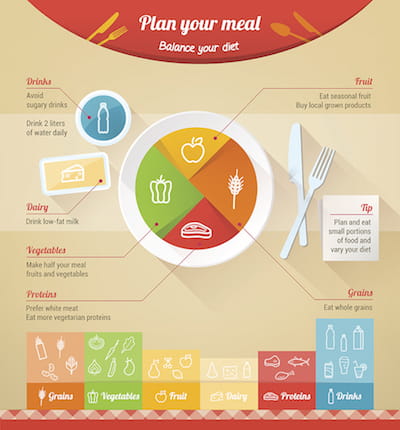Why a gluten-free diet may not be healthy for your kids
When I was a college student I knew a girl who suffered from celiac disease, and each time our group of friends went to eat at a restaurant, she brought a lunchbox from home filled with gluten-free food because she was unable to eat much of the food served in a restaurant. Before that I had never heard of gluten, and I thought it was a terrible curse for my friend to be unable to eat at a restaurant like the rest of us. Although I lost touch with her after college, I am sure my friend’s dining experiences have gotten a lot easier over time.
These days it seems as though everywhere we turn there are more and more gluten-free options on our grocery store shelves and in the restaurants we frequent. In fact, studies show that approximately one quarter of Americans are consuming gluten-free products. Why? Because many people believe that by consuming gluten-free foods, they are making a better choice than is offered by the traditional gluten-containing foods.
Is gluten bad for our health?
Many American consumers have already accepted the premise that gluten-free foods are healthier than gluten-containing foods, and a burgeoning market has catered to this preference, offering gluten-free cereals, breads, pasta, crackers and more. Even foods that never contained gluten will now sport a “gluten-free” sign on the label. And if gluten-free is better for us, our thinking goes, then it’s probably better for our kids too, right?
Let’s take a step back for a moment and revisit this idea that gluten is inherently bad, unhealthy or “toxic.” Gluten is a protein that is commonly found in wheat, rye, barley and many processed foods. For individuals suffering from celiac disease, gluten triggers an autoimmune (allergic) response causing a variety of problems within the digestive tract and throughout the body. Lifelong avoidance of any and all gluten is the only treatment. For the roughly one in 100 people in the U.S. with celiac disease, gluten is harmful.
Those who are allergic to wheat may follow a gluten-free diet, but often they can consume other foods that contain gluten while excluding wheat from their diet.

Others may experience what is known as a wheat or gluten sensitivity. This is not an allergy (and should not be confused as such) but it means that consuming wheat or gluten can cause certain symptoms in some people, such as abdominal pain, constipation, cramps bloating and others. For individuals with this sensitivity, avoiding gluten may be helpful or preferable.
However, outside of these specific medical conditions, there is no evidence to support the overall assertion that a gluten-free diet is better for your health than a diet containing gluten. There is no scientific data to support the idea that avoiding gluten or reducing gluten consumption has any benefit for healthy adults or children. It’s important for us to remember that a gluten-free diet is a beneficial treatment for certain illnesses (and necessary in the case of celiac disease), but this doesn’t translate to a gluten-free diet being better for everyone across the board.
Gluten-free diets aren’t healthier for kids, but they can be harmful
As new research has emerged about gluten-free foods, so have concerns about the well-being of children who are placed on a gluten-free diet by (well-intentioned) parents without medical supervision and without a medical condition that requires it. A recent article in the Journal of Pediatrics, written by pediatric gastroenterologist Norelle Reilly, MD of Columbia University Medical Center, outlines the downside of a gluten-free diet.
Gluten-free packaged foods are often higher in fat and calories than their gluten-containing counterparts. Some studies have even demonstrated that a gluten free diet may contribute to a higher likelihood of obesity, insulin resistance and metabolic syndrome (a group of conditions that together can mean a higher risk of heart attack, stroke and diabetes).
There is also concern that children may become deficient in some vital nutrients when following a gluten-free diet. Many foods such as cereals and breads are fortified with a variety of vitamins and nutrients such as folate, B-vitamins and iron, but gluten-free products often do not contain these important additives.

Another potential issue for those restricted to a gluten-free diet is that as they preferentially choose certain foods, this lack of variety may make them more likely to consume higher quantities of things that actually are toxic to their bodies, such as arsenic and mercury.
Beyond these dietary concerns, there are also the social and economic problems with a gluten-free diet. By placing your child on a gluten-free diet unnecessarily, your family’s food cost may increase dramatically, and this could become a huge burden for some families. There’s also the social and emotional cost that your child will pay for being required to commit to a specialized diet. They may feel singled out or deprived when all of their friends and classmates are free to partake in birthday celebrations or school picnics.
If a child is diagnosed with celiac disease, wheat allergy, or a wheat or gluten sensitivity, the benefits of a gluten-free diet outweigh the potential risks, and getting help from specialized healthcare providers such as a gastroenterologist and a registered dietitian can help you minimize these risks.
If you think your child may be suffering from one of these problems, ask your pediatrician to help you get the appropriate testing to find out the cause of your child’s symptoms. It’s best to refrain from attempting to diagnose and treat your child’s symptoms on your own, otherwise you may be unknowingly putting your child at risk for other problems.
If you’re interested in providing healthy foods for your family, focus on providing a well-balanced diet full of fruits and vegetables, lean proteins and whole grains. You can learn more about how to create a healthy plate at choosemyplate.gov.
For more information on these and other conditions, contact the Center for Digestive Health and Nutrition at Arnold Palmer Hospital or call 321-843-2584 to make an appointment today!







